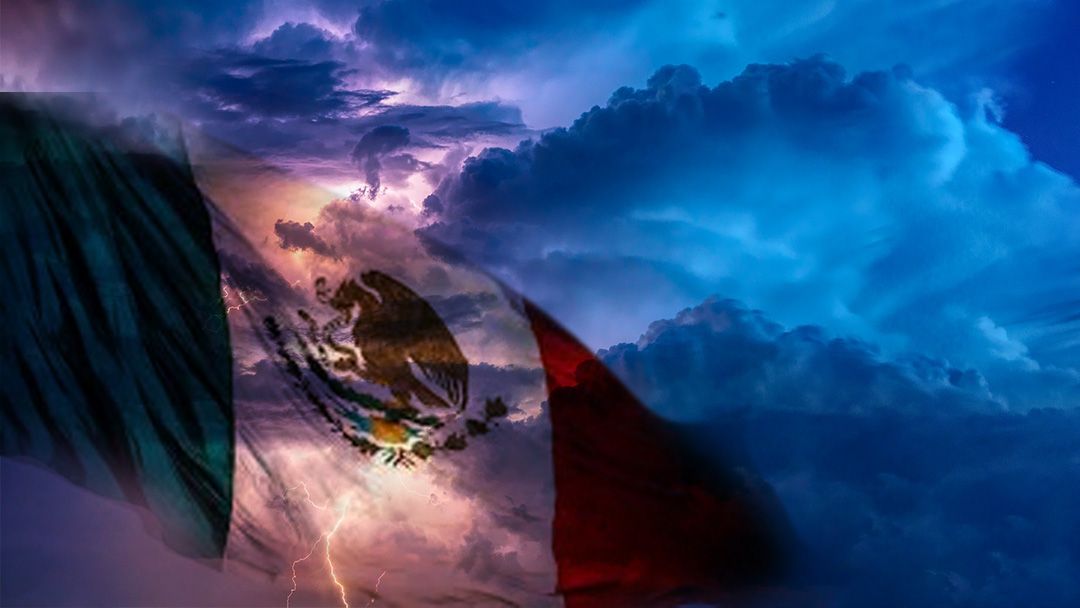Editor’s Note: Jorge G. Castañeda is a CNN contributor. He was Minister of Foreign Relations of Mexico. He is currently a professor at New York University and his next book, “America through Foreign Eyes,” will be published by Oxford University Press in June.
(CNN Spanish) – Many Latin American countries present dissonances in their response or experience in the face of the coronavirus crisis. Some have suffered greater public health havoc – Ecuador, for example – and others will suffer more serious or lasting economic consequences – the tourist islands of the Caribbean, to name a few. Mexico is in a paradoxical situation. Until now, the number of infections and deaths, given the size of the country – 130 million inhabitants – is low compared to other nations. On the other hand, the economic fall may be much greater than in the rest of the region, and even in several European or Asian countries.
Although with outbreaks and local crises – the case of Tijuana, for example – and the beginning of overflowing the health system, the death rate in Mexico remains low. If it were proportional to that of the United States, with an older population, but also with a more robust health system, there should be more than 10,000 deaths in Mexico as of Wednesday. The last official number is barely over 400. This may change in the coming days. It may be due to an underestimation of the deaths, either due to lack of information or due to an erroneous classification – deliberate or not – or to some Mexican peculiarities. The fact is that, until now, Mexico has not gotten rid of the coronavirus at a sanitary level.

On the other hand, in economic matters, the situation is truly dramatic. For two different reasons.
The first is the immediate impact of the economic recession. I think Mexico will see its economy contract this year by no less than 8%, and perhaps more. It lacks unemployment insurance for the millions who will lose their jobs and a financing program for members of the informal sector or the so-called “tip earners” of the formal sector who will lose a large part or all of their income. Being a tourist destination par excellence, it has already been hit ferociously by cancellations of trips, conventions, vacations, etc.
As it is a recipient country for remittances, it will be seriously affected by its collapse, as in 2009. As an oil exporter, Mexico has been overwhelmed by the collapse in prices. And being a country of manufacturing exports to the United States, especially automobiles, it has been devastated by the fall in North American demand. The López Obrador government decided not to give cash to those who lose their jobs, contrary to what they have done in the United States, and it did not choose to support companies to avoid layoffs, as in Europe. In summary, at least within Latin America, with the possible exceptions of Cuba and Venezuela, Mexico could well be the country that suffers the most in economic terms this year.
But the most serious lies in the second reason. López Obrador’s economic and social project, which aroused so many expectations – without foundation, certainly – among millions of Mexicans, has gone down the drain. It was about, as far as there is a credible and coherent version of that plan, of transferring resources in large amounts from the State and directly to the most disadvantaged people, and of privileging a half dozen projects of great depth of infrastructure for, in the long run, generate more growth. As far as possible, the president sought to pay for all of this at existing tax rates, but with higher growth than in the past and redirecting public spending.
It no longer aspires to further growth. In 2019, the Mexican economy decreased slightly; in 2020 it will fall as we said. For the rest of his six-year term – until 2024 – he will hardly recover what he lost in 2020. Tax revenues will decrease in an equivalent proportion. López Obrador’s conflict with domestic and foreign businessmen – reflected, among other things, in a furious editorial in The Financial Times on April 14 – guarantees that private investments, both domestic and foreign, will remain low until the end.
So, as things are going -and they can change, but the margin is narrow- by 2024, or in 2022, when an election to revoke the mandate of the president will take place, at his behest, in Mexico, there will be, at best the cases, the same poverty, the same inequality, the same violence and the same injustice as the average of the last quarter-century.
Not necessarily worse, but certainly not better. Disappointment can be devastating, even for a society accustomed to accepting everything, or as we say in Mexico, to “hold a piano.” The appointment is for the beginning of 2022, when López Obrador may lose the revocation of the mandate that he himself instituted.
Source: cnnespanol.cnn.com
The Mazatlan Post



